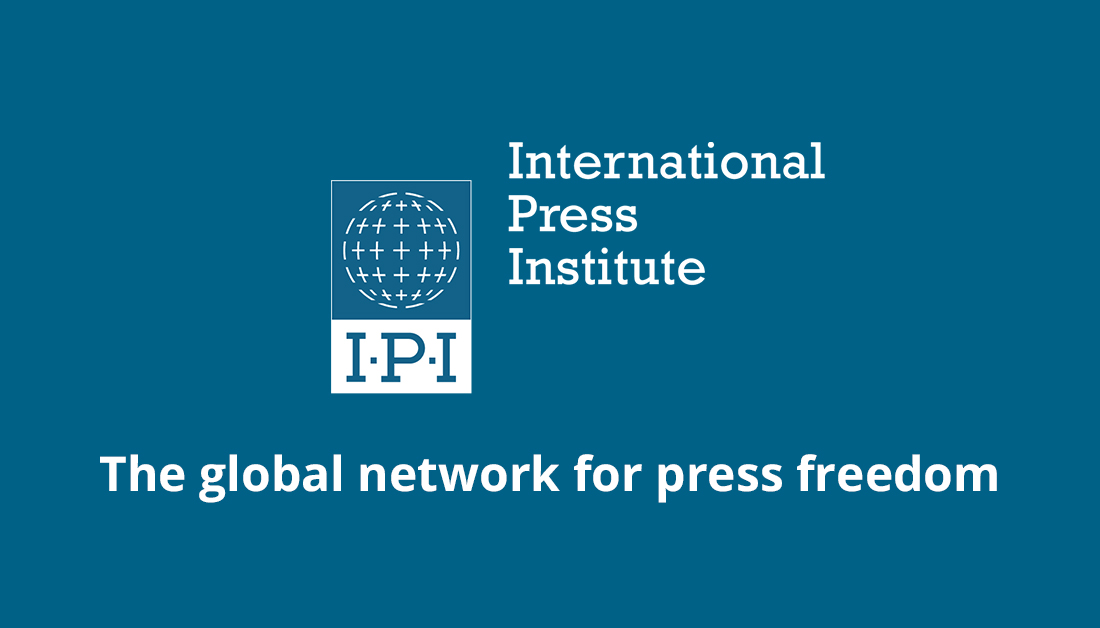Two journalists arrested in Vietnam for criticizing the government should be immediately released, the International Press Institute (IPI) said today.
On February 5, bureau chief of the online magazine Giao Duc Va Thoi Dai (Age and Education) Phan Bui Bao Thy and his associate Le Anh Dung were held for questioning by the police. Five days later, they were officially charged with “abusing democratic freedoms” under Article 331 of the nation’s Criminal Code.
The journalists were arrested after publishing articles on Facebook that allegedly defamed officials and accused authorities of corruption in local infrastructure and property projects. The accusations focused on Nguyen Van Hung, a former provincial communist leader and current vice minister of culture, tourism and sport, as well as on Vo Van Hung, the present chairman of the central province of Quang Tri.
According to media reports, they will be held for at least two months for questioning. The police also searched their homes and confiscated material related to their online work. The site of Giao Duc Va Thoi Dai’s online magazine was taken down shortly after.
The two journalists’ arrests took place amidst increasing hostilities against independent media professionals in the country connected to the Vietnam Communist Party’s 13th party Congress, which concluded in early February 2021.
Tight control during the COVID-19 crisis
Amidst the coronavirus outbreak, authorities in Vietnam promulgated a new law that gives authorities the power to fine people who publish “fake news” on their social media. The regulation came into effect on April 2020 with the claimed purpose of tackling “falsehoods” related to the COVID-19 crisis and other forms of misinformation.
While a cybersecurity law had already been in effect since January 1, 2019, the most recent law provides for a penalty of 10 to 20 million VND (€356 to €713), which equals three to six months’ average salary in Vietnam.
According to the new regulation “fake news” include posts with false and distorted information, as well as slander and insults to the “honor and dignity” of citizens and other actions beyond the coronavirus crisis. Under this law, authorities are allowed to fine individuals who share state secrets, publications banned in the country or statements that confuse people.
The decree has raised concern amongst human rights organizations who were already alarmed by the attacks on the media brought by the promulgation of the first cybersecurity law in January 2019.
On January 28, 2021, at least four people were sanctioned for spreading false information on Facebook. On top of removing the information each person was fined VND 7.5 million (€267), a total of VND 30 million (around €1,067).
Other recent events
Ahead of the party Congress, the government intensified the suppression of dissidents and independent media.
At the end of last year, a freelance journalist, Truong Chau Huu Danh, was imprisoned for three months due to his posts criticizing the violations of freedom of expression by the state.
On January 5, three journalists were charged with disseminating propaganda against the state. Journalists Le Huu Minh Tuan from the Independent Journalists’ Association of Vietnam (IJAVN) and Nguyen Tuong Thuy, vice-chairman of the IJAVN, were sentenced to eleven years in prison. The third journalist and blogger, Pham Chi Dung, was sentenced to 15 years in prison.
Later on January 20, an advocate for freedom of expression and environmental rights, Dinh Thi Thu, was jailed for seven years for sharing “anti-state posts” on her Facebook account that criticized the cyber-security law, the government’s handling of the pandemic and environmental issues.
While the party Congress has come to an end, organizations like Vietnam Human Rights Defenders have expressed concern for the future of independent media in the country. It is expected that with the recent appointment of General Nguyen Trong Nghia as the new propaganda chief, Vietnam will continue to tighten controls on political topics and dissents.
